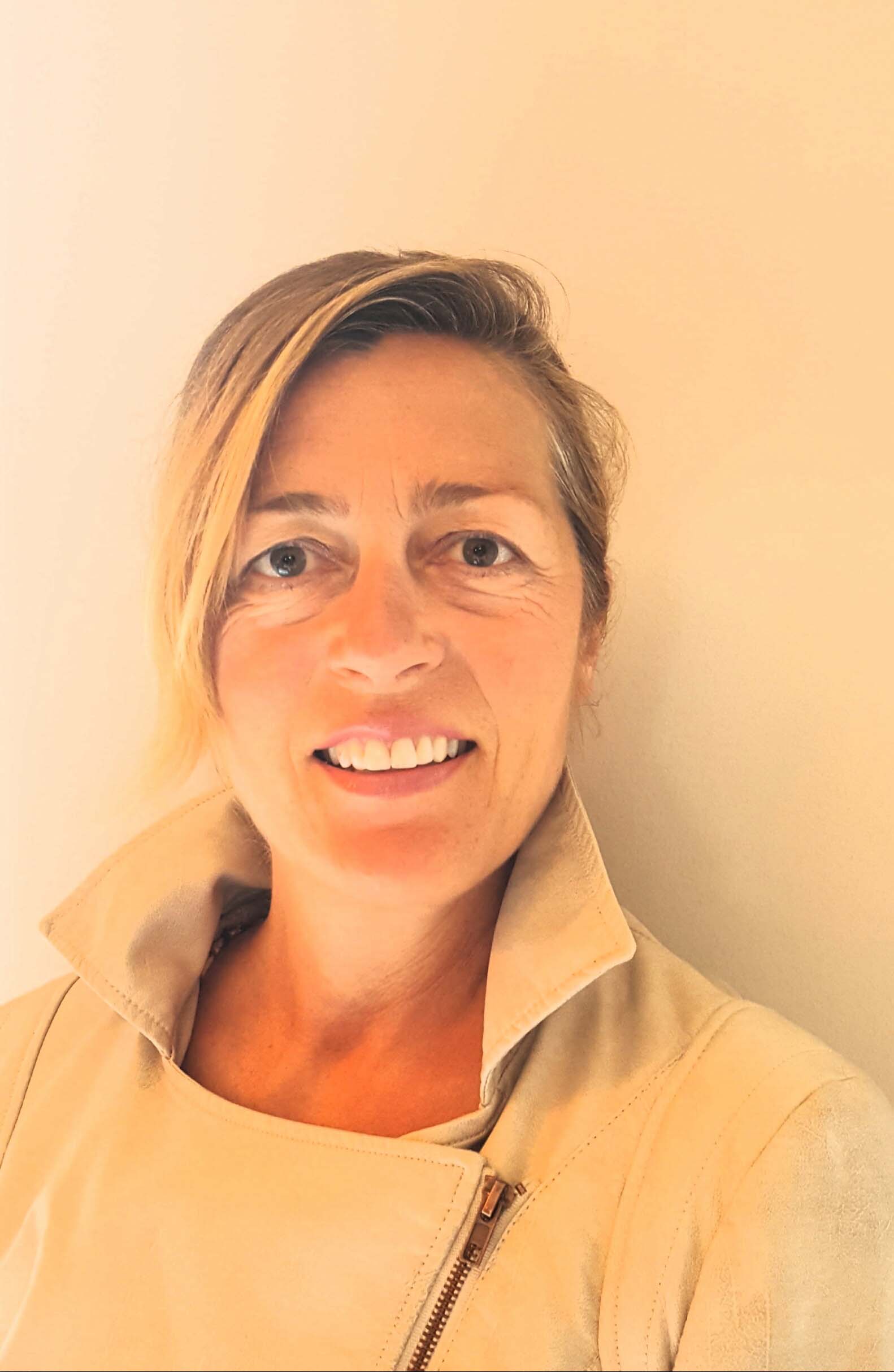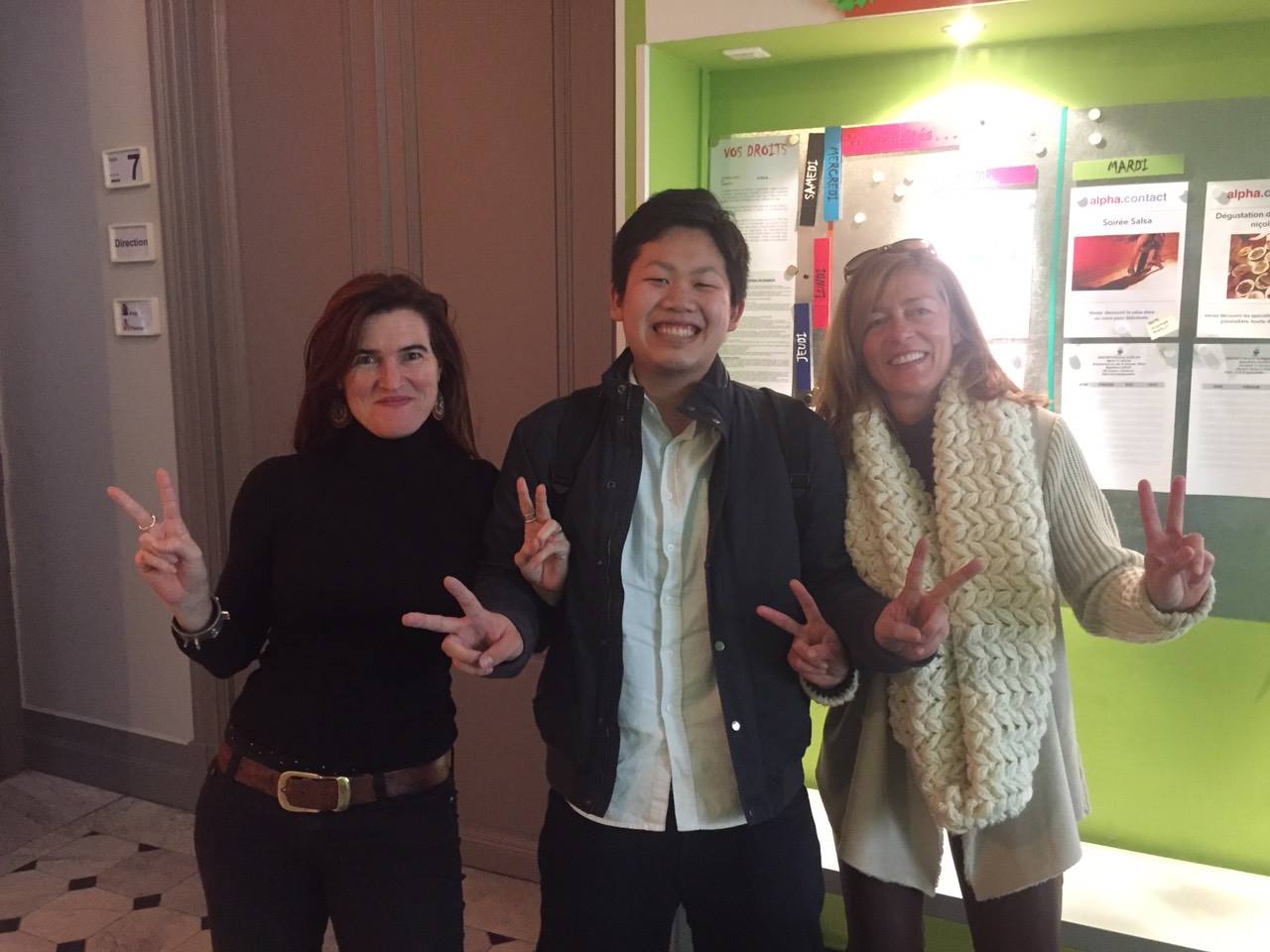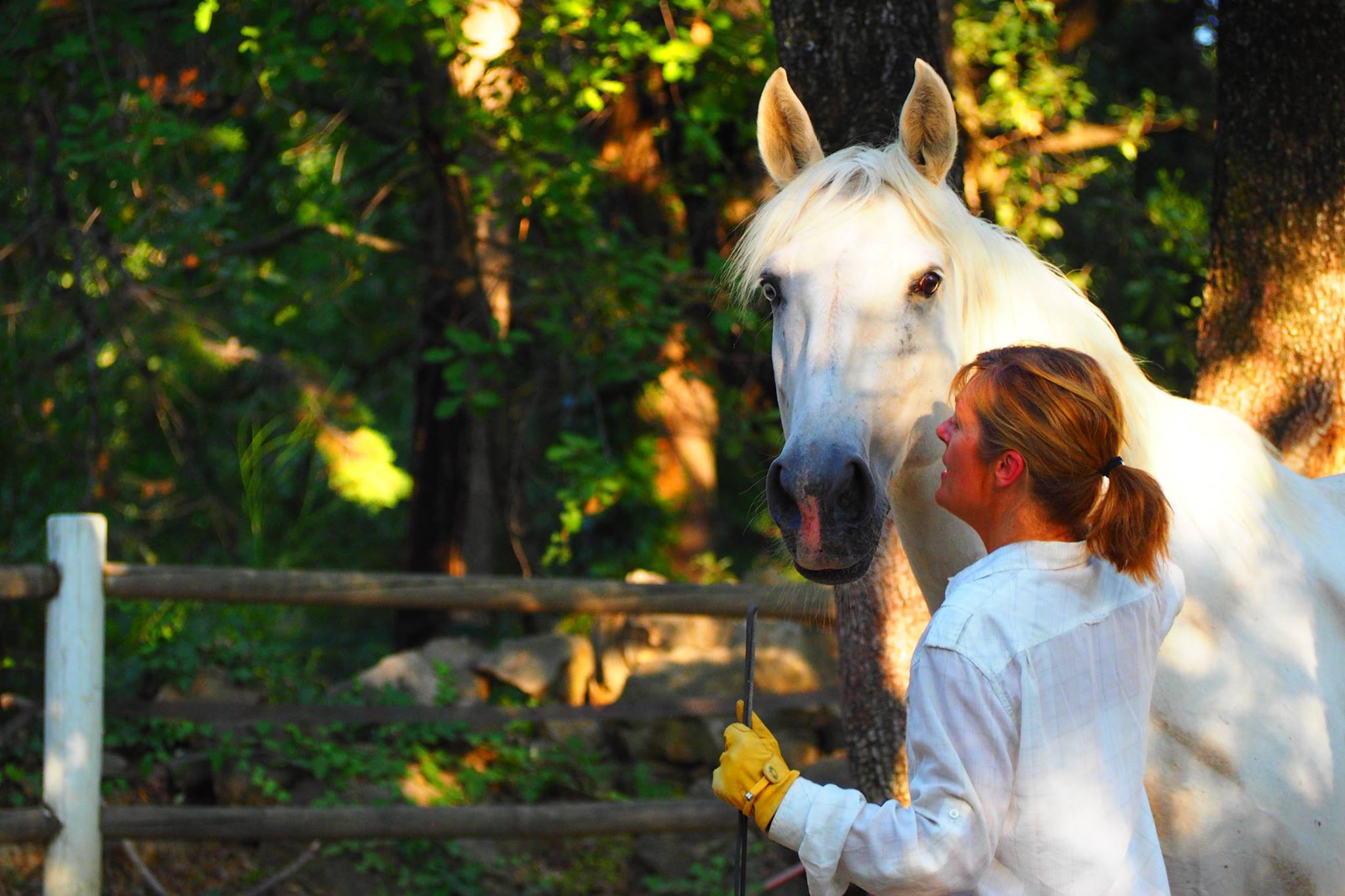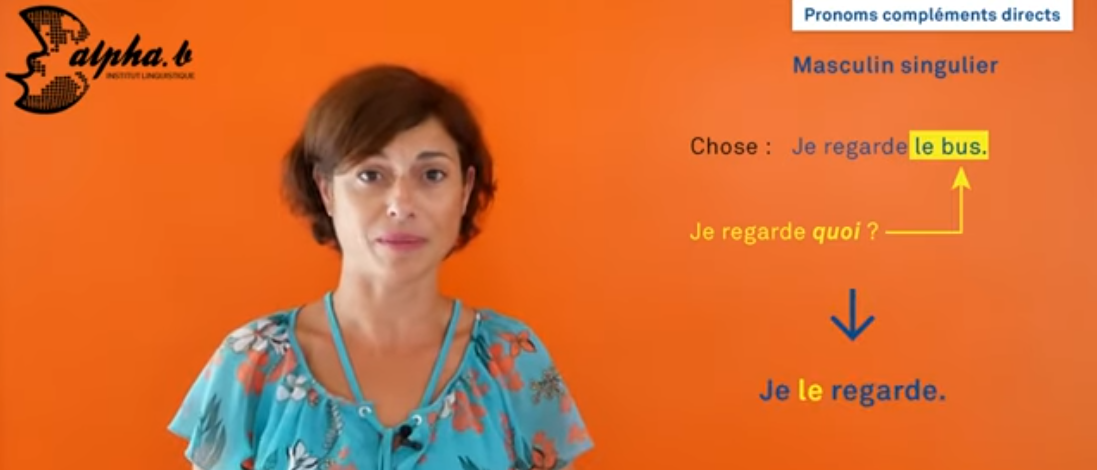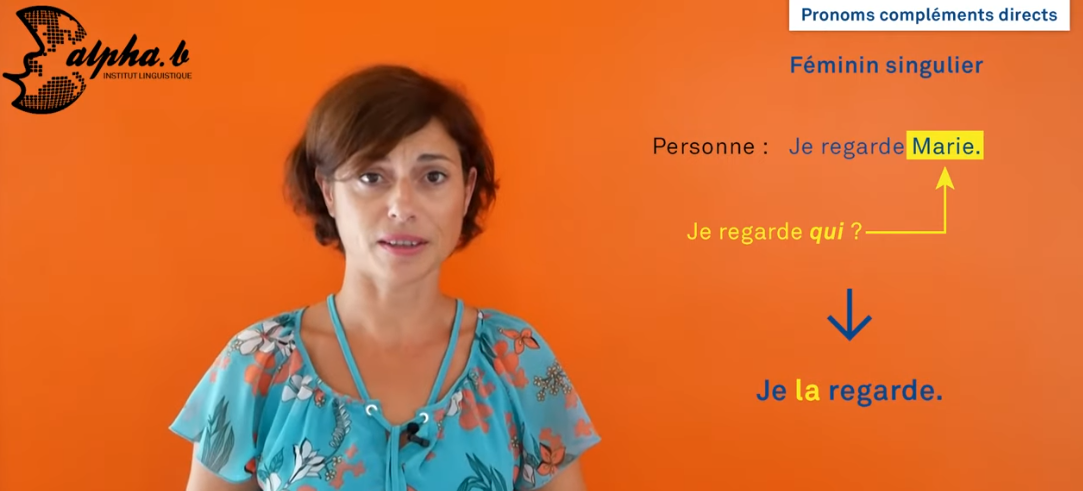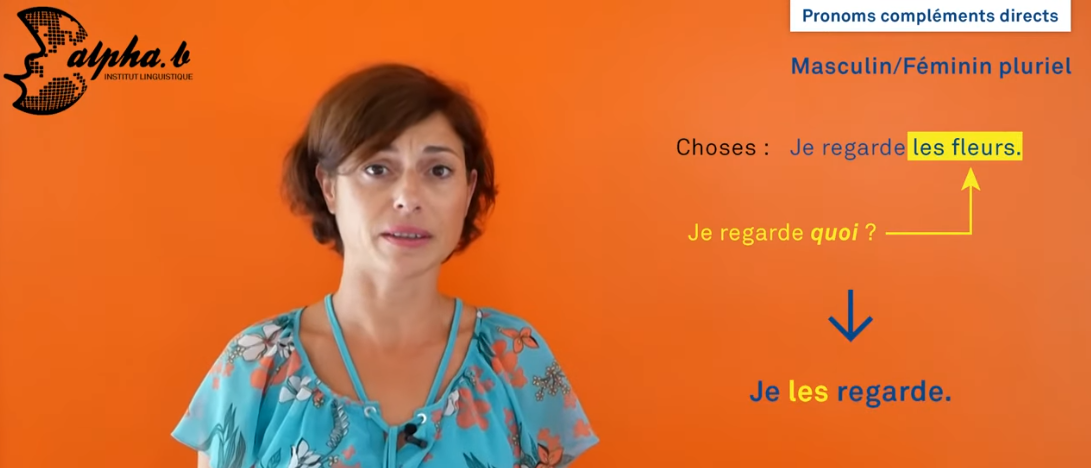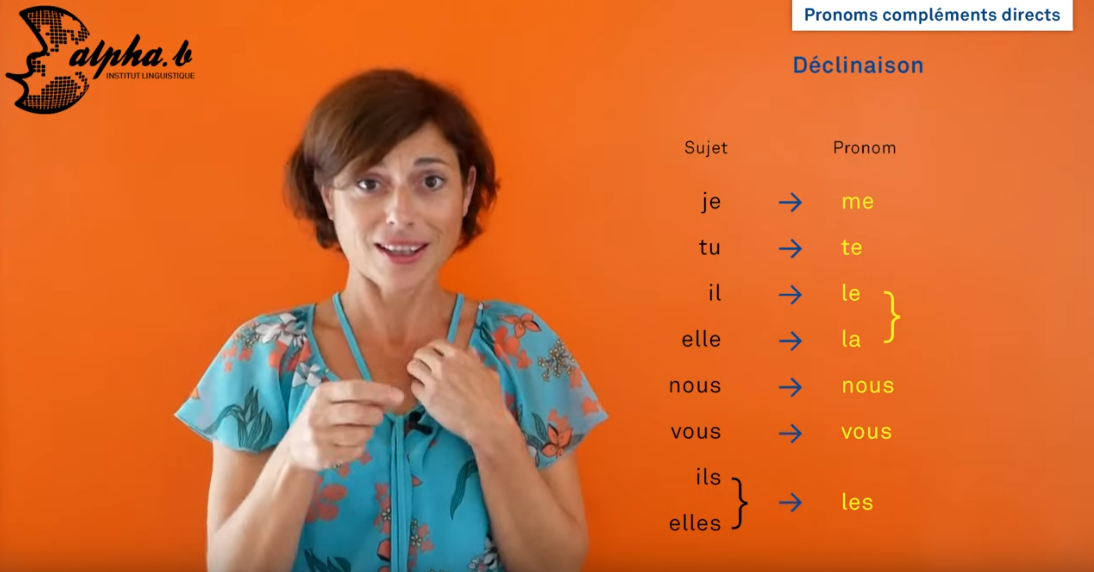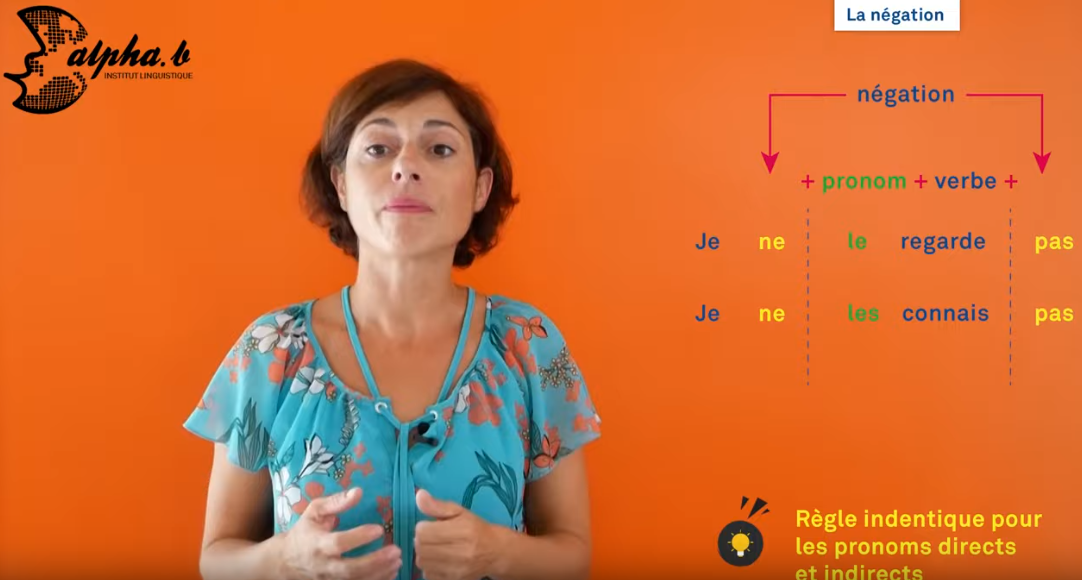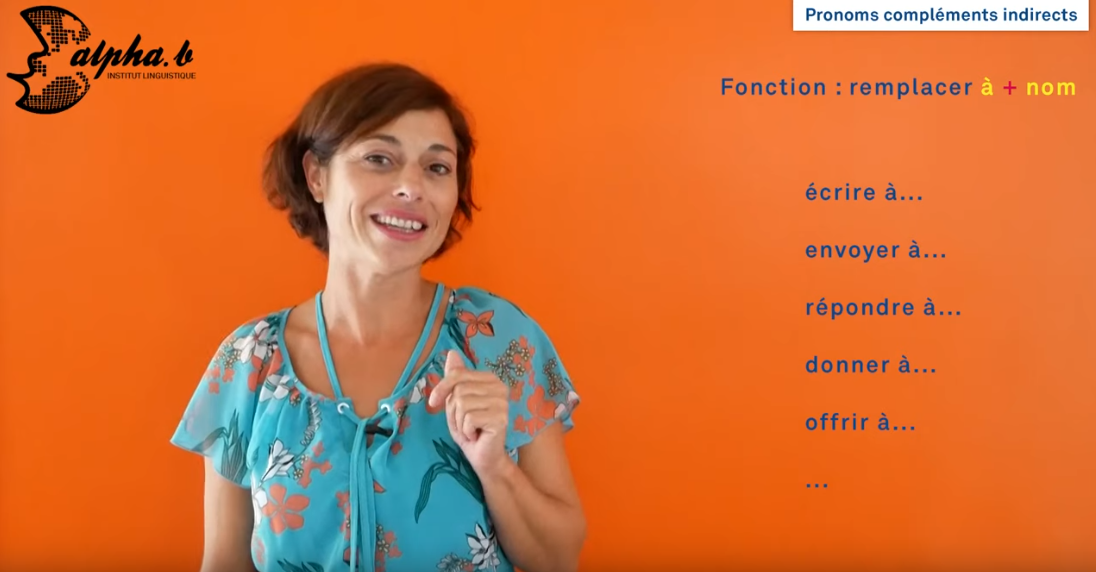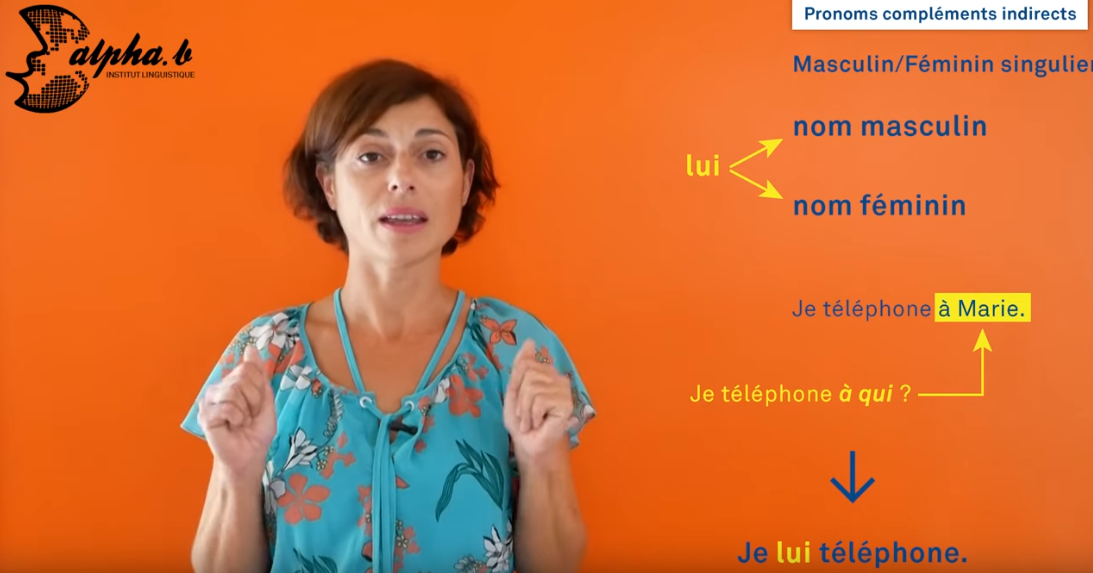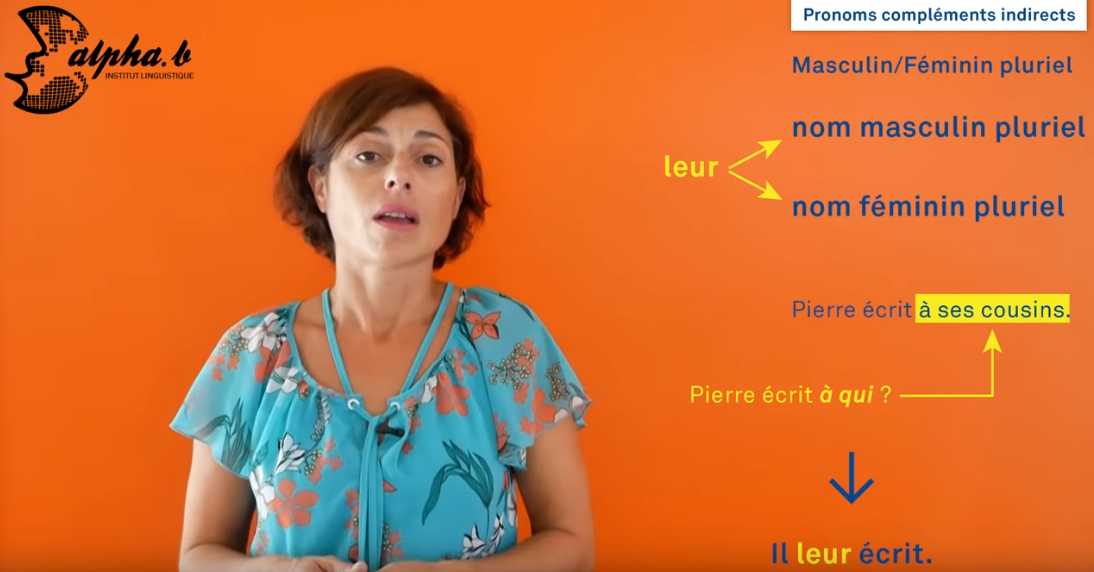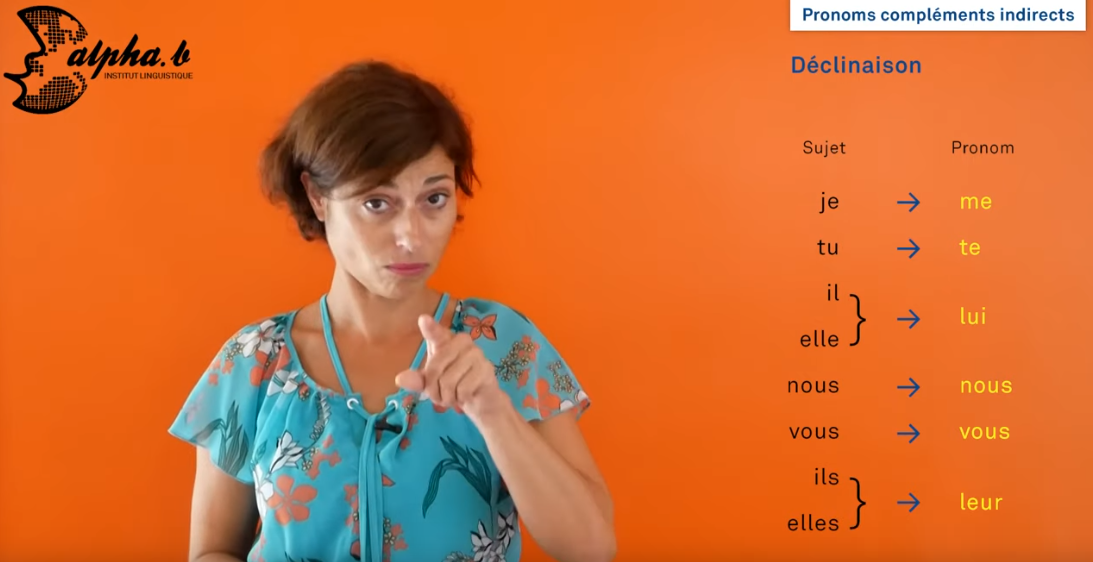This week, we are meeting for a new free French video lesson, taken by one of our teachers.
Christian, teacher at Institut alpha.b, is coming back with the second part of his lesson on relative pronouns.
You can go back to the first part by clicking here.
In this video we will talk about how to use the relative pronouns: qui, que, où.
The essential points:
QUI replaces the subject of the verb
QUE replaces the direct object
OÙ replaces a time or a place
Looking again at the examples from our first video:
- Les étudiants écoutent le professeur. (The students listen to the teacher)
- Les étudiants sont intelligents. (The students are intelligent)
Which words appear twice? -> Les étudiants
We must decide which sentence we want to replace them in.
Choosing the first sentence:
What is the role of the words “les étudiants” in the first sentence?
“Les étudiants” is the subject of the verb “écouter”.
The relative pronoun which replaces the subject is “QUI”. So we will use QUI.
How is the sentence structured?
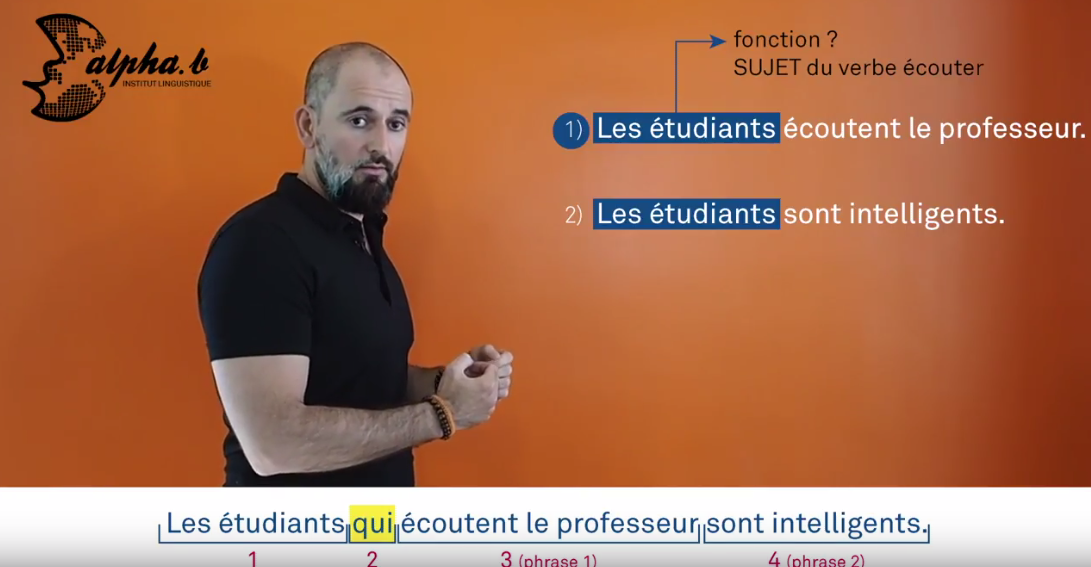
“Les étudiants qui écoutent le professeur sont intelligents.” (The students, who listen to the teacher, are intelligent)
This logic also works if you want to replace “les étudiants” in the second sentence:
“Les étudiants qui sont intelligents écoutent le professeur.” (The students, who are intelligent, listen to the teacher)
This method allows you to put the focus on a certain element of the sentence, to emphasise certain information as opposed to other information, to accentuate it.
Looking at a second example:
- Les étudiants écoutent le professeur. (The students listen to the teacher)
- Le professeur est extraordinaire. (The teacher is extraordinary)
Which element is repeated? -> “Le professeur”
If we replace it in the first sentence:
What is the role of the word “professeur”? Who do the students listen to? The teacher. Therefore it is the direct object.
We must therefore use the pronoun “QUE”.
How is the phrase constructed?
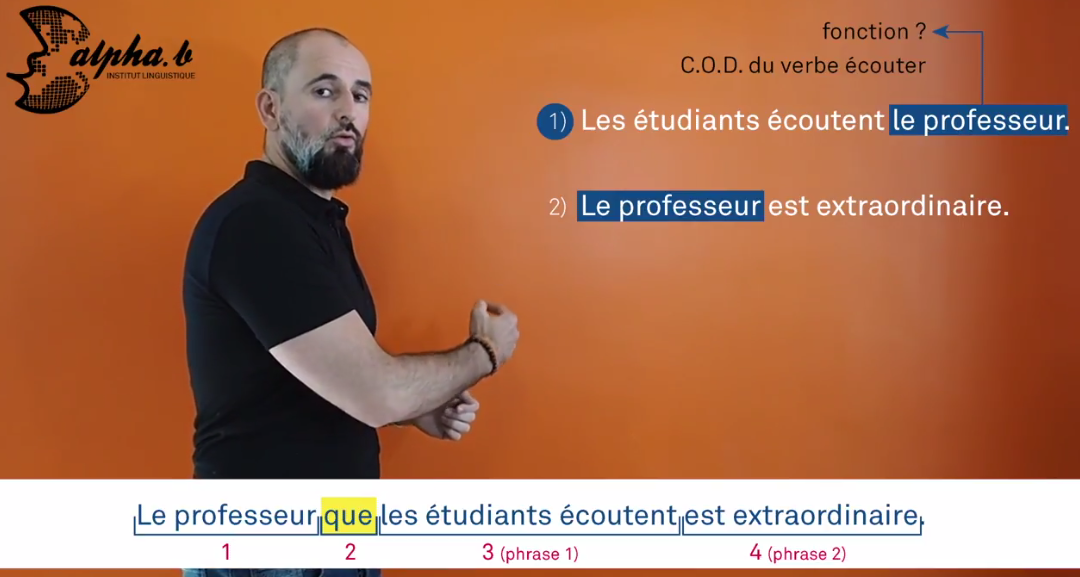
“Le professeur que les étudiants écoutent est extraordinaire.” (The teacher that the students listen to is extraordinary)
But with this example, what if we wanted to replace “le professeur” in the second sentence?
It is possible but we must change the grammar slightly to retain the same meaning in our two sentences. The teacher is listened to by the students. We must transform it from the active form to the passive form.
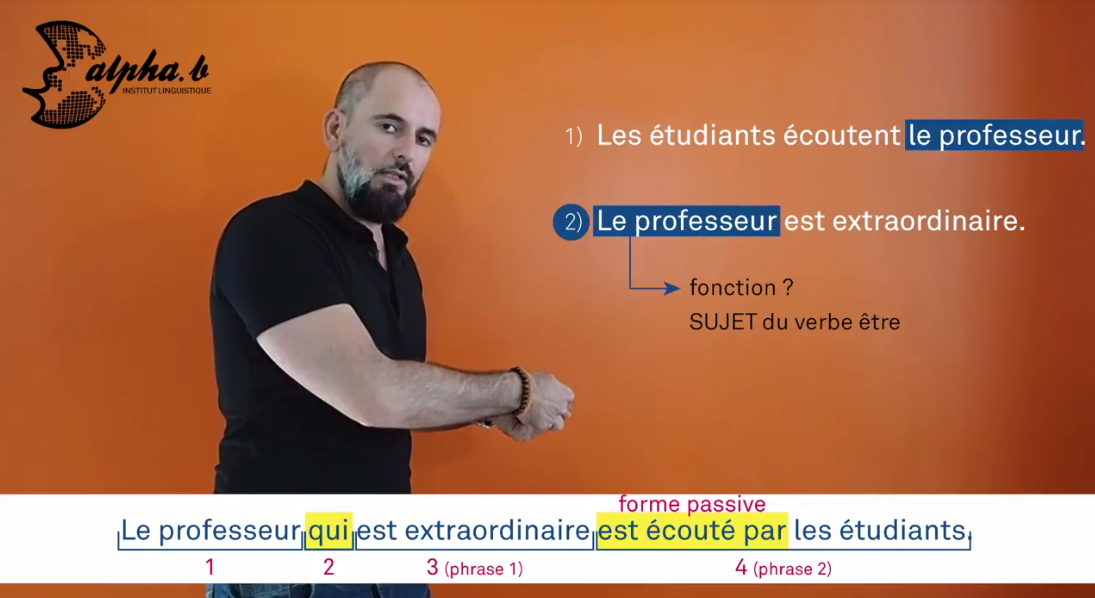
“Le professeur qui est extraordinaire est écouté par les étudiants.” (The teacher, who is extraordinary, is listened to by the students)
Moving onto the relative pronoun “OÙ” with its two possibilities. Don’t worry, even French people make mistakes, isn’t that right Franck?
“Grenoble est une ville que j’aime bien aller”
What did Franck want to say?
- Grenoble est une ville. (Grenoble is a city)
- J’aime bien aller à Grenoble (I would really like to go to Grenoble)
Grenoble is a place.
Therefore you must use the pronoun “OÙ”.
The correct sentence would therefore be:
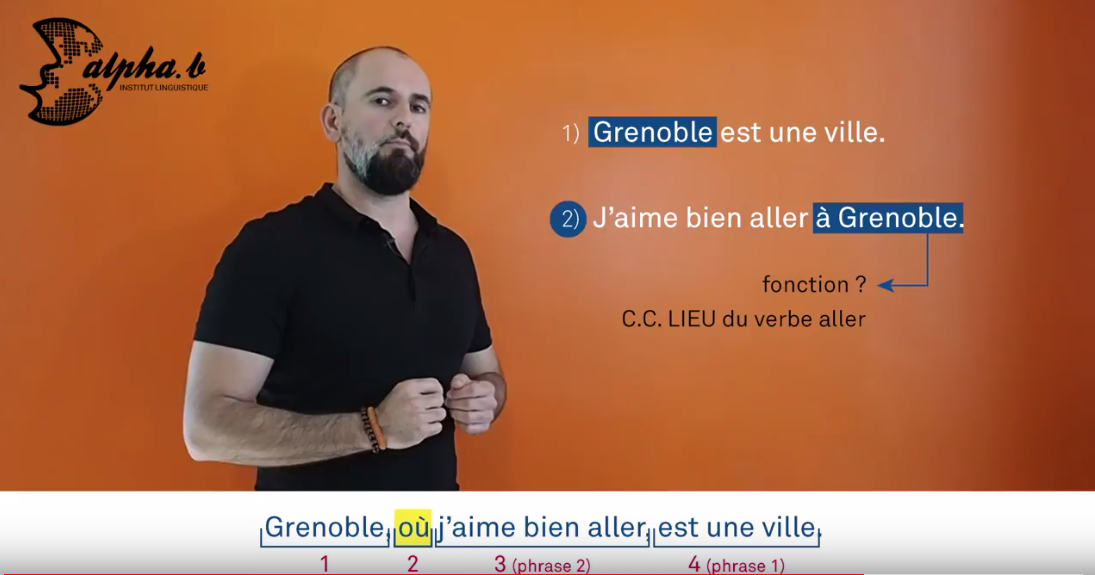
“Grenoble où j’aime bien aller, est une ville.” (Grenoble, where I would really like to go, is a city)
Now we will use OÙ to replace a time.
- Il neigeait ce jour-là. (It was snowing that day)
- Je l’ai rencontré ce jour-là (I met him that day)
The element that is repeated is “ce jour-là”. It is an expression of time, so we use the pronoun “OÙ”.
The answer:
“Le jour où il neigeait, je l’ai rencontré.”
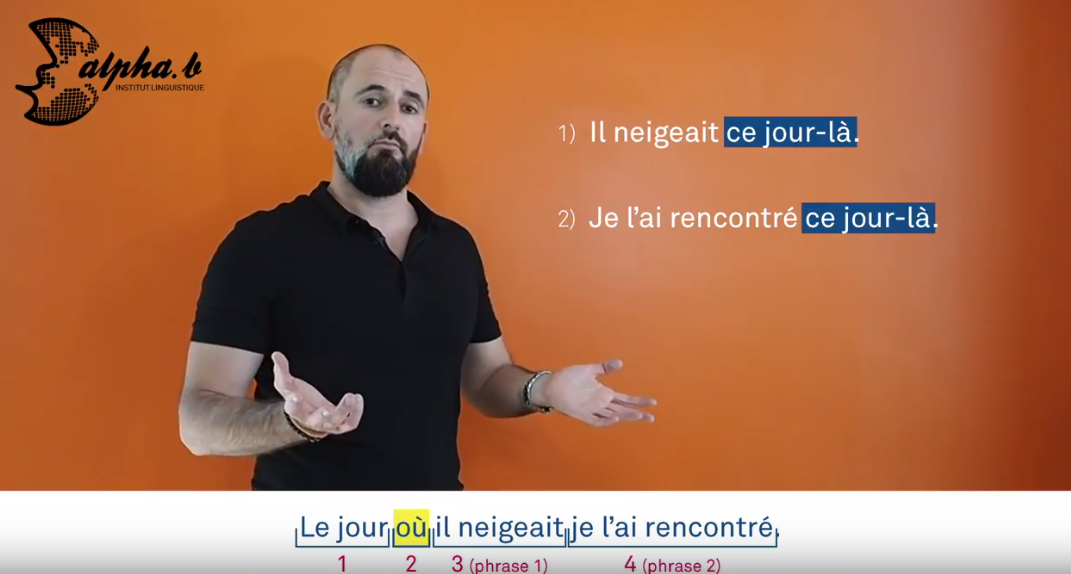
(The day when it was snowing, I met him.)
We will meet you next time for another video on the pronoun “DONT”.
Before you go, we encourage you to download the exercise on the three pronouns by clicking here. Send it to us for correction, or post your answers in the comments!

